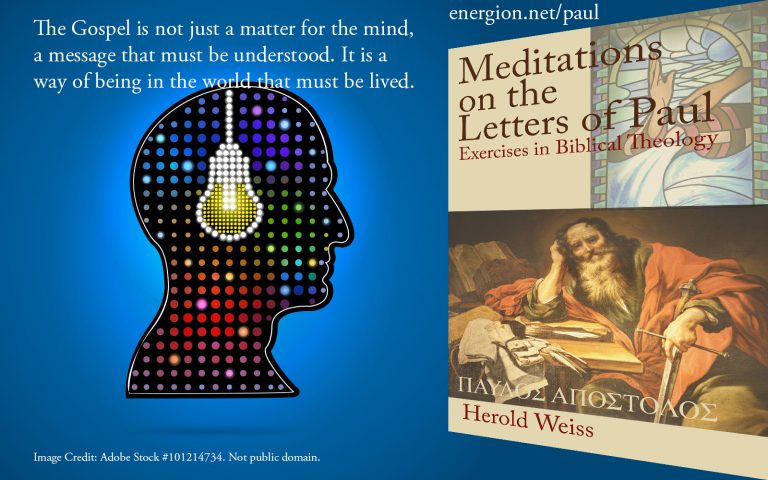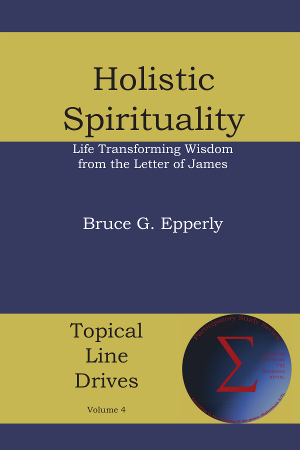Ernest Lucas on Daniel
In an earlier post, Dating the Book of Daniel, I mentioned that I had ordered Ernest Lucas’s volume on Daniel in the Apollos Old Testament Commentary series. I now have received, read, and returned that volume, and I thought I would post a few notes.
I have to admit that I continue to be puzzled at the number of conservative scholars who either embrace or allow a late (2nd century BCE) dating of the book of Daniel. Lucas covers this issue in some detail throughout the book. He does not make a specific statement on Biblical inerrancy, though I would be surprised to hear that he does not accept it, but he nonetheless believes that one can see certain portions of the book as history presented as prophecy.
He takes an unusual approach in that he does not argue the dating and authorship of the book in the introduction, but rather presents basic lines of evidence throughout the commentary, and then summarizes them in an epilogue. His view is that a conservative scholar with a high view of inspiration can hold either of the major views on dating, a sixth century or a second century composition. He does argue rather forcefully for the unity of the book, which would exclude various composite theories of authorship, including a late author writing in Hebrew building on either an Aramaic document, or a collection stories written in Aramaic.
In the prophetic interpretation portions of the commentary, Lucas sees all of the major prophetic sections ending at the time of Antiochus Epiphanes. Thus the little horns of chapters 7 & 8 both refer to Antiochus. This interpretation is not unusual in critical commentaries, though it hasn’t been a common conservative view until recently. Even more unusual for a conservative Christian commentary is that he also interprets chapter 9 as ending with Antiochus, rather than using it as a Messianic prophecy. I must be clear here–he does not rule out the application to Jesus that is common in Christian interpretation, but he does believe that interpretation is less probable. The key reason for this is his interpretation of the “word to restore and rebuild Jerusalem” (Daniel 9:25) which he believes most probably refers not to any decree, but to one of Jeremiah’s prophecies of the time. The chronology
does not work for the ministry of Jesus in this case. Of course, it also doesn’t work for Antiochus Epiphanes, but Lucas calls the time frame symbolic rather than precise. I think he’s quite possibly right on the time period not being intended as precise, but again I am not used to seeing that position in an ostensibly conservative commentary.
In Daniel 10-12, the final section, which the vast majority of the commentators agree refers to the history leading up to, and the reign of Antiochus, Lucas offers the option of viewing most of the material as history written as prophecy, and then tries to avoid the obvious conclusion, assuming that is the case, that 11:40-45 are an inaccurate prophecy. He suggests that this section is a loosely worded way of saying that Antiochus would come to an end. I’m afraid here that I have to say that I would prefer that a commentator either admit that the text is wrong, or that the prophecy must have some other application. If this does apply to the death of Antiochus, it goes well beyond any normal concept of “general.”
Despite any tension that may result from the author’s view on dating, which is unlikely to satisfy either a liberal or a conservative audience, this is truly a well-written and well-researched commentary. There are two features of this commentary that I especially appreciated.
Lucas applies some excellent literary-critical methodology to the stories, and to some extent to the prophecies, discussing the plot and characterization. Daniel is particular susceptible to the literary-critical approach, which can produce some substantial insights from the stories. Too often the main questions asked in studying Daniel are whether it is historical, whether the prophecies are really predictive, and what they mean. There is substantial value in the stories if one will take the time to think about them seriously, and Lucas does that.
Second, Lucas interacts with commetators who range from the very conservative to the very liberal/critical. He doesn’t ignore the various arguments and concerns, nor does he usually dismiss them without discussing the evidence. He does occasionally dismiss some complex theory of authorship quite abruptly, but normally he does so with particularly convoluted and low probability theories.
I strongly recommend this commentary to any student of Daniel. Whether your view is conservative or liberal you will find material that challenges your view, and will help you to think through the material more thoroughly. Lucas provides his supporting methodology throughout. In particular, I would recommend this commentary to those interested in pursuing genre and or literary criticism in the book of Daniel.


